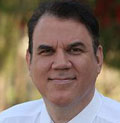Home » Posts tagged 'Florida 26th District'
Tag Archives: Florida 26th District
Rubio, Murphy to face off in Florida U.S. Senate race
Wasserman Schultz beats back Bernie-allied rival; Corrine Brown out
♦By Rich Shumate, Chickenfriedpolitics.com editor
 GAINESVILLE, Florida (CFP) — U.S. Senator Marco Rubio handily won renomination in Florida’s Republican primary and will face Democratic U.S. Rep. Patrick Murphy in a race that will help determine which party controls the Senate.
GAINESVILLE, Florida (CFP) — U.S. Senator Marco Rubio handily won renomination in Florida’s Republican primary and will face Democratic U.S. Rep. Patrick Murphy in a race that will help determine which party controls the Senate.

U.S. Senator Marco Rubio
Rubio took 72 percent in the August 30 vote, easily defeating businessman Carlos Beruff, who garnered just 18 percent. On the Democratic side, Murphy was the clear winner, taking 60 percent of the vote, compared to just 18 percent for his main challenger, U.S. Rep. Alan Grayson.
The bad news for Grayson continued, as his wife’s attempt to keep his 9th District U.S. House seat in the family sputtered in the Democratic primary.

U.S. Rep. Debbie Wasserman Schultz
Meanwhile, in South Florida’s 23rd District, Democratic U.S. Rep. Debbie Wasserman Schultz beat back a challenge from Tim Canova, turning aside an effort by angry Bernie Sanders supporters to force her from Congress over accusations that she, as chair of the Democratic National Committee, showed favoritism to Hillary Clinton in the presidential race.
Wasserman Schultz took 57 percent to 43 percent for Canova, who spent more than $3 million trying to unseat the veteran congresswoman.

U.S. Rep. Corrine Brown
However, another veteran Democrat was not as fortunate. U.S. Rep. Corrine Brown, who was indicted on corruption charges in July, was defeated in the 5th District primary by Al Lawson, a former state legislator from Tallahassee, in what was likely the last chapter in a 34-year-long political career.
Lawson won 48 percent to 40 percent for Brown.
A redraw of state’s congressional map, ordered by the Florida Supreme Court, substantially altered Brown’s district, forcing her to run in a swath of new territory outside of her Jacksonville base. Federal prosecutors have also accused Brown of conspiring with her chief of staff to convert a scholarship fund into a private slush fund used to pay for her political promotion and personal expenses. She has denied the charges.
Rubio initially decided to give up his Senate seat to pursue the Republican presidential nomination. But after his White House aspirations fizzled, he reversed course, prompting the departure of three of the four major candidates then in the race, all but Beruff.
Speaking to supporters in Kissimmee, the senator dismissed Murphy as an “old-fashioned liberal” handpicked for the Senate by Democratic leaders and a dilettante whose wealth family has given him “everything he’s every wanted.”
“If Patrick Murphy wants to be a U.S. Senator, he’s going to have to earn it by beating the son of a bartender and a maid who came to this country in search of a better life,” he said, employing details from his own biography that were a staple of his run for president.
But speaking to his supporters in Palm Beach County, Murphy criticized Rubio for his poor attendance in the Senate while he was running for president.
“Marco Rubio is the worst of Washington because he puts himself first every time,” Murphy said. “He gave up on his job. He gave up on Florida.”
Murphy also pounced on Rubio’s statement on CNN a day before the primary that he would not commit to serving his full Senate term, saying “no one can make that commitment because you don’t know what the future’s going hold in your life personally or politically.”
Murphy retorted: “Guess what, senator. I’ve got two words for you. I can.”
In his battle against Grayson, Murphy — who was a registered Republican until 2012, when he switched parties to run for Congress — had the backing of virtually all of the Democratic establishment, including the Democratic Senatorial Campaign Committee.

U.S. Rep. Alan Grayson
Party leaders were fearful that a victory by the outspoken Grayson — who regularly subjects reporters to profanity-laden tirades and once had to apologize after calling a female lobbyist “a K Street whore” — would spell disaster in November.
During the primary campaign, Grayson also faced domestic abuse allegations made by his ex-wife. He denied ever hitting her, but the story prompted two liberal groups — Democracy for America and the Progressive Change Campaign Committee — to reverse their endorsements.
In the end, Grayson not only lost to Murphy by more than 40 points but also barely edged out a lesser known candidate, political newcomer Pam Keith, for second place. Keith had snagged a surprise endorsement from one of Florida’s largest newspapers, The Miami Herald.
In addition to helping torpedo Brown in the 5th District, the new map made the 2nd District, which takes in the middle of the Florida Panhandle, more Republican, prompting Democratic U.S. Rep. Gwen Graham to retire.
After a nasty campaign with substantial spending by outside groups, Republicans chose Neal Dunn, a Panama City urologist, over Mary Thomas, a state government lawyer from Tallahassee. Dunn took 41 percent to 39 percent for Thomas, who was trying to become the first Indian-American woman ever elected to Congress.
After Grayson gave up his 9th District to run for the Senate, both his wife, Dena Grayson, and one of his top aides, Susannah Randolph, launched campaigns to succeed him. But State Senator Darren Soto beat them both in the Democratic primary, which is tantamount to election in the heavily Democratic Orlando-based district.
Grayson took 36 percent of the vote, compared to 18 percent each for Randolph and Dina Grayson.
In the 18th District, which Murphy gave up to run for the Senate, Democrats selected Randy Perkins, a multimillionaire businessman from Delray Beach, while Republicans went with Brian Mast, an Army veteran who lost both his legs while serving as a bomb disposal specialist in Afghanistan.
The 18th District, which takes in parts of Palm Beach County and the Treasure Coast, is likely to be a genuine toss-up in November.
The 26th District, which takes in the Florida Keys and southwest Miami-Dade County, will feature a rematch between Republican U.S. Rep. Carlos Curbelo and the man he beat in 2014, former Democratic U.S. Rep. Joe Garcia.
While Curbelo was unopposed in the GOP primary, Garcia eaked out an 800-vote win over Annette Taddeo in the Democratic primary.



 WASHINGTON (CFP) — Two Southern freshman U.S. House Democrats who are on the Republicans’ 2020 target list —
WASHINGTON (CFP) — Two Southern freshman U.S. House Democrats who are on the Republicans’ 2020 target list — 

 WASHINGTON (CFP) — The U.S. House campaign arms for both parties have released their first list of targets for 2020, with Southern Democrats playing an unfamiliar role they haven’t enjoyed in recent cycles — on defense, protecting their 2018 gains.
WASHINGTON (CFP) — The U.S. House campaign arms for both parties have released their first list of targets for 2020, with Southern Democrats playing an unfamiliar role they haven’t enjoyed in recent cycles — on defense, protecting their 2018 gains.





 (CFP) — The big, blue wave that Democrats hoped would carry them to a breakthrough in the South crashed into the Republican’s big, red wall in Tuesday’s midterm elections.
(CFP) — The big, blue wave that Democrats hoped would carry them to a breakthrough in the South crashed into the Republican’s big, red wall in Tuesday’s midterm elections.








 (CFP) — Heading toward the November election, just 11 of the South’s 154 U.S. House seats look to be at all in play, a measly 7 percent.
(CFP) — Heading toward the November election, just 11 of the South’s 154 U.S. House seats look to be at all in play, a measly 7 percent.

















